- Home
- D. H. Lawrence
Lady Chatterley's Lover Page 25
Lady Chatterley's Lover Read online
Page 25
She quivered again at the potent inexorable entry inside her, so strange and terrible. It might come with the thrust of a sword in her softly-opened body, and that would be death. She clung in a sudden anguish of terror. But it came with a strange slow thrust of peace, the dark thrust of peace and a ponderous, primordial tenderness, such as made the world in the beginning. And her terror subsided in her breast, her breast dared to be gone in peace, she held nothing. She dared to let go everything, all herself, and be gone in the flood.
And it seemed she was like the sea, nothing but dark waves rising and heaving, heaving with a great swell, so that slowly her whole darkness was in motion, and she was ocean rolling its dark, dumb mass. Oh, and far down inside her the deeps parted and rolled asunder, in long, far-travelling billows, and ever, at the quick of her, the depths parted and rolled asunder, from the center of soft plunging, as the plunger went deeper and deeper, touching lower, and she was deeper and deeper and deeper disclosed, and heavier the billows of her rolled away to some shore, uncovering her, and closer and closer plunged the palpable unknown, and further and further rolled the waves of herself away from herself, leaving her, till suddenly, in a soft, shuddering convulsion, the quick of all her plasm was touched, she knew herself touched, the consummation was upon her, and she was gone. She was gone, she was not, and she was born: a woman.
Ah, too lovely, too lovely! In the ebbing she realized all the loveliness. Now all her body clung with tender love to the unknown man, and blindly to the wilting penis, as it so tenderly, frailly, unknowingly withdrew, after the fierce thrust of its potency. As it drew out and left her body, the secret, sensitive thing, she gave an unconscious cry of pure loss, and she tried to put it back. It had been so perfect! And she loved it so!
And only now she became aware of the small, bud-like reticence and tenderness of the penis, and a little cry of wonder and poignancy escaped her again, her woman’s heart crying out over the tender frailty of that which had been the power.
“It was so lovely!” she moaned. “It was so lovely!” But he said nothing, only softly kissed her, lying still above her. And she moaned with a sort of bliss, as a sacrifice, and a new-born thing.
And now in her heart the queer wonder of him was awakened. A man! the strange potency of manhood upon her! Her hands strayed over him, still a little afraid. Afraid of that strange, hostile, slightly repulsive thing that he had been to her, a man. And now she touched him, and it was the sons of god with the daughters of men. How beautiful he felt, how pure in tissue! How lovely, how lovely, strong, and yet pure and delicate, such stillness of the sensitive body! Such utter stillness of potency and delicate flesh! How beautiful! How beautiful! Her hands came timorously down his back, to the soft, smallish globes of the buttocks. Beauty! What beauty! a sudden little flame of new awareness went through her. How was it possible this beauty here, where she had previously been repelled? The unspeakable beauty to the touch, of the warm, living buttocks! The life within life, the sheer warm, potent loveliness. And the strange weight of the balls between his legs! What a mystery! What a strange heavy weight of mystery, that could lie soft and heavy in one’s hand! The roots, root of all that is lovely, the primeval root of all full beauty.
She clung to him, with a kiss of wonder that was almost awe, terror. He held her close, but he said nothing. He would never say anything. She crept nearer to him, nearer, only to be near the sensual wonder of him. And out of his utter, incomprehensible stillness, she felt again the slow, momentous, surging rise of the phallus again, the other power. And her heart melted out with a kind of awe.
And this time his being within her was all soft and iridescent, purely soft and iridescent, such as no consciousness could seize. Her whole self quivered unconscious and alive, like plasm. She could not know what it was. She could not remember what it had been. Only that it had been more lovely than anything ever could be. Only that. And afterwards she was utterly still, utterly unknowing, she was not aware for how long. And he was still with her, in an unfathomable silence along with her. And of this, they would never speak.
When awareness of the outside began to come back, she clung to his breast, murmuring: “My love! my love!” And he held her silently. And she curled on his breast, perfect.
But his silence was fathomless. His hands held her like flowers, so still and strange. “Where are you?” she whispered to him. “Where are you? Speak to me! Say something to me!”
He kissed her softly, murmuring: “Ay, my lass!”
But she did not know what he meant, she did not know where he was. In his silence he seemed lost to her.
“You love me, don’t you?” she murmured.
“Ay, tha knows!” he said.
“But tell me!” she pleaded.
“Ay! Ay! ’asn’t ter felt it?” he said dimly, but softly and surely. And she clung close to him, closer. He was so much more peaceful in love than she was, and she wanted him to reassure her.
“You do love me!” she whispered, assertive. And his hands stroked her softly, as if she were a flower, without the quiver of desire, but with delicate nearness. And still there haunted her a restless necessity to get a grip on love.
“Say you’ll always love me!” she pleaded.
“Ay!” he said, abstractedly. And she felt her questions driving him away from her.
“Mustn’t we get up?” he said at last.
“No!” she said.
But she could feel his consciousness straying, listening to the noises outside.
“It’ll be nearly dark,” he said. And she heard the pressure of circumstance in his voice. She kissed him, with a woman’s grief at yielding up her hour.
He rose, and turned up the lantern, then began to pull on his clothes, quickly disappearing inside them. Then he stood there, above her, fastening his breeches and looking down at her with dark, wide eyes, his face a little flushed and his hair ruffled, curiously warm and still and beautiful in the dim light of the lantern, so beautiful, she would never tell him how beautiful. It made her want to cling fast to him, to hold him, for there was a warm, half-sleepy remoteness in his beauty that made her want to cry out and clutch him, to have him. She would never have him. So she lay on the blanket with curved, soft naked haunches, and he had no idea what she was thinking, but to him too she was beautiful, the soft, marvellous thing he could go into, beyond everything.
“I love thee that I can go into thee,” he said.
“Do you like me?” she said, her heart beating.
“It heals it all up, that I can go into thee. I love thee that tha opened to me. I love thee that I came into thee like that.”
He bent down and kissed her soft flank, rubbed his cheek against it, then covered it up.
“And will you never leave me?” she said.
“Dunna ask them things,” he said.
“But you do believe I love you?” she said.
“Tha loved me just now, wider than iver tha thout tha would. But who knows what’ll ’appen, once tha starts thinkin’ about it!”
“No, don’t say those things!—And you don’t really think that I wanted to make use of you, do you?”
“How?”
“To have a child—?”
“Now anybody can ‘ave any childt i’ th’ world,” he said, as he sat down fastening on his leggings.
“Ah no!” she cried. “You don’t mean it?”
“Eh well!” he said, looking at her under his brows. “This wor t’ best.”
She lay still. He softly opened the door. The sky was dark blue, with crystalline, turquoise rim. He went out, to shut up the hens, speaking softly to his dog. And she lay and wondered at the wonder of life, and of being.
When he came back she was still lying there, glowing like a gipsy. He sat on the stool by her.
“Tha mun come one naight ter th’ cottage, afore tha goos; sholl ter?” he asked, lifting his eyebrows as he looked at her, his hands dangling between his knees.
“Sholl ter?” she
echoed, teasing.
He smiled.
“Ay, sholl ter?” he repeated.
“Ay!” she said, imitating the dialect sound.
“Yi!” he said.
“Yi!” she repeated.
“An’ slaip wi’ me,” he said. “It needs that. When sholt come?”
“When sholl I?” she said.
“Nay,” he said, “tha canna do’t. When sholt come then?”
“ ’Appen Sunday,” she said.
“ ’Appen a’ Sunday! Ay!”
He laughed at her quickly.
“Nay, tha canna,” he protested.
“Why canna I?” she said.
He laughed. Her attempts at the dialect were so ludicrous, somehow.
“Coom then, tha mun goo!” he said.
“Mun I?” she said.
“Maun Ah!” he corrected.
“Why should I say maun when you say mun,” she protested. “You’re not playing fair.”
“Arena Ah!” he said, leaning forward and softly stroking her face.
“Th’art good cunt, though, aren’t ter? Best bit o’ cunt left on earth. When ter likes! When tha’rt willin’!”
“What is cunt?” she said.
“An’ doesn’t ter know? Cunt! It’s thee down theer; an’ what I get when I’m i’side thee; it’s a’ as it is, all on’t.”
“All on’t,” she teased. “Cunt! It’s like fuck then.”
“Nay, nay! Fuck’s only what you do. Animals fuck. But cunt’s a lot more than that. It’s thee, dost see: an’ tha’rt a lot besides an animal, aren’t ter? even ter fuck! Cunt! Eh, that’s the beauty o’ thee, lass.”
She got up and kissed him between the eyes that looked at her so dark and soft and unspeakably warm, so unbearably beautiful.
“Is it?” she said. “And do you care for me?”
He kissed her without answering.
“Tha mun goo, let me dust thee,” he said.
His hand passed over the curves of her body, firmly, without desire, but with soft, intimate knowledge.
As she ran home in the twilight the world seemed a dream; the trees in the park seemed bulging and surging at anchor on a tide, and the heave of the slope to the house was alive.
Chapter Thirteen
On Sunday Clifford wanted to go into the wood. It was a lovely morning, the pear blossom and plum had suddenly appeared in the world in a wonder of white here and there.
It was cruel for Clifford, while the world bloomed, to have to be helped from chair to bath-chair. But he had forgotten, and even seemed to have a certain conceit of himself in his lameness. Connie still suffered, having to lift his inert legs into place. Mrs. Bolton did it now, or Field.
She waited for him at the top of the drive, at the edge of the screen of beeches. His chair came puffing along with a sort of valetudinarian slow importance. As he joined his wife he said:
“Sir Clifford on his foaming steed!”
“Snorting, at least!” she laughed.
He stopped and looked around at the façade of the long, low old brown house.
“Wragby doesn’t wink an eyelid!” he said. “But then why should it? I ride upon the achievements of the mind of man, and that beats a horse.”
“I suppose it does. And the souls in Plato riding up to heaven in a two-horse chariot would go in a Ford car now,” she said.
“Or a Rolls-Royce: Plato was an aristocrat!”
“Quite! No more black horse to thrash and maltreat. Plato never thought we’d go one better than his black steed and his white steed, and have no steeds at all, only an engine!”
“Only an engine and gas!” said Clifford.
“I hope I can have some repairs done to the old place next year. I think I shall have about a thousand to spare for that: but work costs so much!” he added.
“Oh, good!” said Connie. “If only there aren’t more strikes!”
“What would be the use of their striking again! Merely ruin the industry, what’s left of it: and surely the owls are beginning to see it!”
“Perhaps they don’t mind ruining the industry,” said Connie.
“Ah, don’t talk like a woman! The industry fills their bellies, even if it can’t keep their pockets quite so flush,” he said, using turns of speech that oddly had a twang of Mrs. Bolton.
“But didn’t you say the other day that you were a conservative-anarchist?” she asked innocently.
“And did you understand what I meant?” he retorted. “All I meant is, people can be what they like and feel what they like and do what they like, strictly privately, so long as they keep the form of life intact, and the apparatus.”
Connie walked on in silence a few paces. Then she said, obstinately:
“It sounds like saying an egg may go as addled as it likes, so long as it keeps its shell on whole. But addled eggs do break of themselves.”
“I don’t think people are eggs,” he said. “Not even angels’ eggs, my dear little evangelist.”
He was in rather high feather this bright morning. The larks were trilling away over the park, the distant pit in the hollow was fuming silent steam. It was almost like old days, before the war. Connie didn’t really want to argue. But then she did not really want to go to the wood with Clifford either. So she walked beside his chair in a certain obstinacy of spirit.
“No,” he said. “There will be no more strikes, if the thing is properly managed.”
“Why not?”
“Because strikes will be made as good as impossible.”
“But will the men let you?” she asked.
“We shan’t ask them. We shall do it while they aren’t looking: for their own good, to save the industry.”
“For your own good, too,” she said.
“Naturally! For the good of everybody. But for their good even more than mine. I can live without the pits. They can’t. They’ll starve if there are no pits. I’ve got other provision.”
They looked up the shallow valley at the mine, and beyond it, at the black-lidded houses of Tevershall crawling like some serpent up the hill. From the old brown church the bells were ringing: Sunday, Sunday, Sunday!
“But will the men let you dictate terms?” she said.
“My dear, they will have to: if one does it gently.”
“But mightn’t there be a mutual understanding?”
“Absolutely: when they realize that the industry comes before the individual.”
“But must you own the industry?” she said.
“I don’t. But to the extent I do own it, yes, most decidedly. The ownership of property has now become a religious question: as it has been since Jesus and St. Francis. The point is not: take all thou hast and give to the poor, but use all thou hast to encourage the industry and give work to the poor. It’s the only way to feed all the mouths and clothe all the bodies. Giving away all we have to the poor spells starvation for the poor just as much as for us. And universal starvation is no high aim. Even general poverty is no lovely thing. Poverty is ugly.”
“But the disparity?”
“That is fate. Why is the star Jupiter bigger than the star Neptune? You can’t start altering the make-up of things!”
“But when this envy and jealousy and discontent has once started,” she began.
“Do your best to stop it. Somebody’s got to be boss of the show.”
“But who is the boss of the show?” she asked.
“The men who own and run the industries.”
There was a long silence.
“It seems to me they’re a bad boss,” she said.
“Then you suggest what they should do.”
“They don’t take their boss-ship seriously enough,” she said.
“They take it far more seriously than you take your ladyship,” he said.
“That’s thrust upon me. I don’t really want it,” she blurted out. He stopped the chair and looked at her.
“Who’s shirking their responsibility now!” he said. “Who is try
ing to get away now from the responsibility of their own boss-ship, as you call it?”
“But I don’t want any boss-ship,” she protested.
“Ah! But that is funk. You’ve got it: fated to it. And you should live up to it. Who has given the colliers all they have that’s worth having; all their political liberty, and their education, such as it is; their sanitation, their health-conditions, their books, their music, everything? Who has given it them? Have colliers given it to colliers? No! All the Wragbys and Shipleys in England have given their part, and must go on giving. There’s your responsibility.”
Connie listened, and flushed very red.
“I’d like to give something,” she said. “But I’m not allowed. Everything is to be sold and paid for now; and all the things you mention now, Wragby and Shipley sell them to the people, at a good profit. Everything is sold. You don’t give one heart-beat of real sympathy. And besides, who has taken away from the people their natural life and manhood, and given them this industrial horror? Who has done that?”
“And what must I do?” he asked, green. “Ask them to come and pillage me?”
“Why is Tevershall so ugly, so hideous? Why are their lives so hopeless?”
“They built their own Tevershall. That’s part of their display of freedom. They built themselves their pretty Tevershall, and they live their own pretty lives. I can’t live their lives for them. Every beetle must live its own life.”

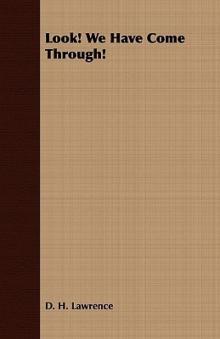 Look! We Have Come Through!
Look! We Have Come Through!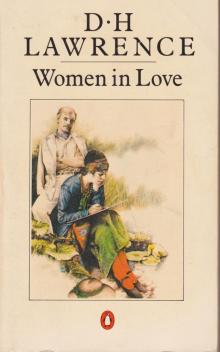 Women in Love
Women in Love The Ladybird
The Ladybird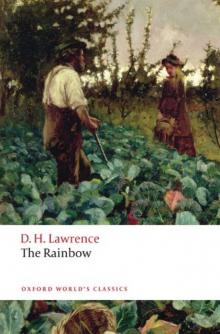 The Rainbow
The Rainbow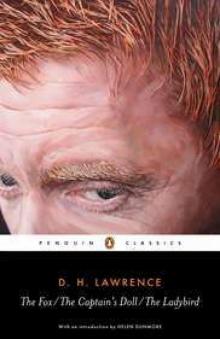 The Captain's Dol
The Captain's Dol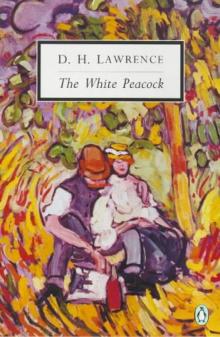 The White Peacock
The White Peacock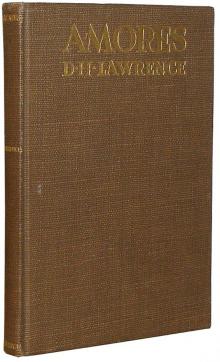 Amores
Amores Lady Chatterley's Lover
Lady Chatterley's Lover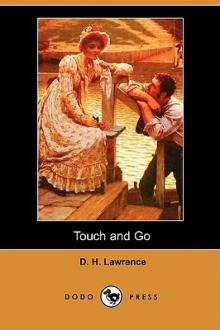 Touch and Go
Touch and Go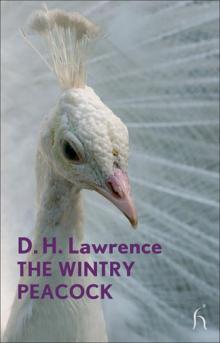 The Wintry Peacock
The Wintry Peacock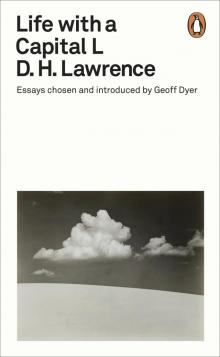 Life with a Capital L
Life with a Capital L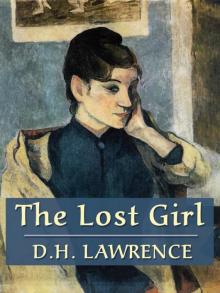 The Lost Girl
The Lost Girl Sons and Lovers
Sons and Lovers England, My England
England, My England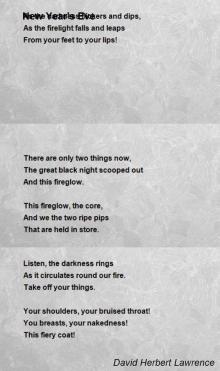 New Poems
New Poems Twilight in Italy
Twilight in Italy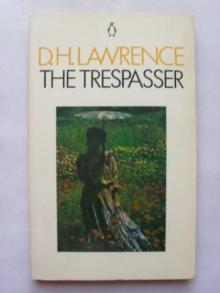 The Trespasser
The Trespasser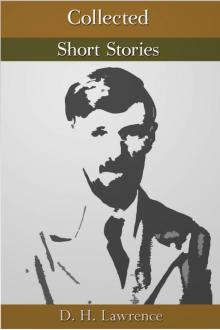 The Collected Short Stories
The Collected Short Stories The First Lady Chatterley's Lover
The First Lady Chatterley's Lover Kangaroo
Kangaroo Bay
Bay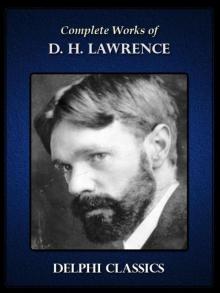 Complete Works of D.H. Lawrence
Complete Works of D.H. Lawrence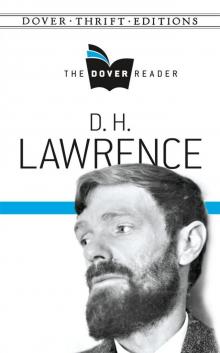 D H Lawrence- The Dover Reader
D H Lawrence- The Dover Reader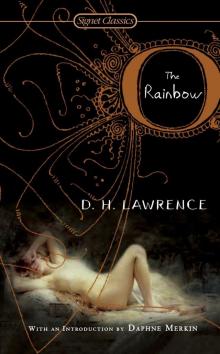 The Rainbow (100th Anniversary ed.)
The Rainbow (100th Anniversary ed.)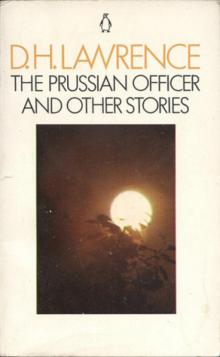 The Prussian Officer
The Prussian Officer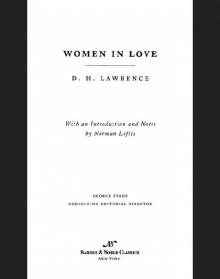 Women in Love (Barnes & Noble Classics Series)
Women in Love (Barnes & Noble Classics Series) John Thomas and Lady Jane
John Thomas and Lady Jane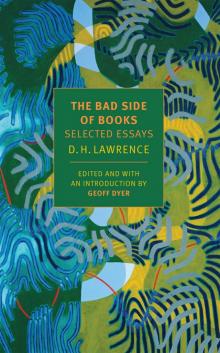 The Bad Side of Books
The Bad Side of Books Sons and Lovers (Barnes & Noble Classics Series)
Sons and Lovers (Barnes & Noble Classics Series) Selected Stories
Selected Stories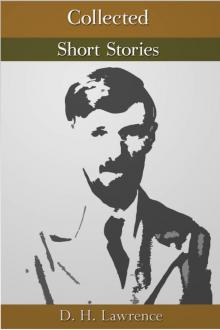 Collected Short Stories
Collected Short Stories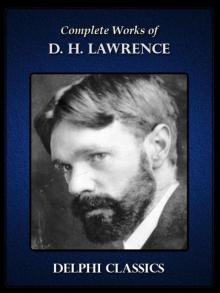 Complete Works of D.H. Lawrence (Illustrated)
Complete Works of D.H. Lawrence (Illustrated)